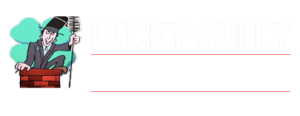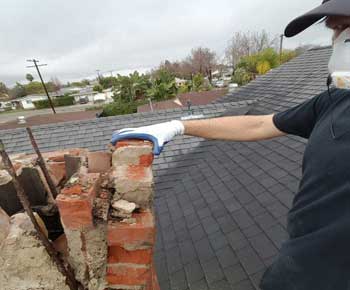Why First-Time Homebuyers Must Prioritize Chimney Inspections Before Closing
Buying your first home is a thrilling milestone. From envisioning future memories to decorating the space, it’s easy to get caught up in the excitement. However, one essential aspect that first-time homebuyers often overlook is the condition of the home’s chimney. Whether you’re purchasing a historic house with a wood-burning fireplace or a modern property with a gas hearth, ensuring that the chimney is safe and functional is crucial.
Let’s explore why chimney inspections are non-negotiable for first-time homebuyers, what they entail, and how Lucky Sully Chimney Sweep can safeguard your new home’s hearth and your family’s safety.
The Importance of Chimney Inspections Before Closing
A chimney is more than just a cozy aesthetic feature—it’s a vital part of your home’s heating system. Skipping a chimney inspection could mean inheriting hidden issues like creosote buildup, structural damage, or airflow blockages, which could result in dangerous consequences or costly repairs.
Many first-time buyers underestimate how critical a chimney inspection is. It’s not just about functionality but also about ensuring your family’s safety and avoiding unforeseen expenses.
By prioritizing an inspection before closing, you can address any issues upfront, negotiate repairs with the seller, or even reconsider the purchase if necessary. Partner with professionals like Lucky Sully Chimney Sweep for reliable and thorough evaluations.
What Happens During a Professional Chimney Inspection?
Chimney inspections typically fall into three levels:
- Level 1: A basic visual inspection of accessible areas.
- Level 2: A more detailed examination, often using cameras to inspect internal components. Recommended for new homebuyers.
- Level 3: An in-depth inspection that may involve removing parts of the chimney or wall for a closer look.
First-time buyers should opt for a Level 2 chimney inspection to ensure the chimney’s internal and external structure is thoroughly examined. This will identify potential issues like:
- Creosote buildup, a flammable residue that increases fire risks.
- Blockages caused by debris or animal nests.
- Cracks in the flue or masonry, compromising safety.
- Leaks or signs of water damage.
Hidden Dangers of Neglecting a Chimney Inspection
Skipping a chimney inspection might save a few bucks upfront, but the long-term consequences could be financially and physically devastating. Hidden dangers include:
- Carbon Monoxide Leaks: A damaged or blocked chimney can allow harmful gases to seep into your home, posing a serious health risk.
- Chimney Fires: Built-up creosote is highly flammable and can ignite, causing house fires.
- Structural Damage: Undetected cracks or loose bricks can worsen over time, leading to expensive repairs or collapses.
For peace of mind, ensure your home’s safety by scheduling a professional inspection with Lucky Sully Chimney Sweep.
The Financial Benefits of Early Chimney Inspections
While chimney inspections might seem like an added expense, they’re an investment that can save you thousands in the long run. For example:
- Repair Negotiations: If the inspection uncovers issues, you can request the seller to handle repairs or lower the home’s price.
- Prevention of Costly Damage: Addressing small cracks or leaks now can prevent expensive structural damage later.
Ultimately, spending a few hundred dollars on an inspection is a small price to pay for avoiding unforeseen costs down the road.
Chimney Inspections for Gas Fireplaces
Many first-time buyers assume gas fireplaces don’t require inspections, but that’s a common misconception. Gas fireplaces might not produce creosote, but they can still suffer from:
- Ventilation blockages that hinder airflow.
- Faulty components or worn-out seals.
- Leaks that can lead to inefficient heating or safety hazards.
Regular chimney inspections ensure gas fireplaces operate safely and efficiently.
Why Chimney Caps and Flashing Matter
Chimney caps and flashing are often overlooked but essential components of a chimney system. They protect against:
- Rainwater Damage: Flashing prevents water from seeping into the roof around the chimney base.
- Debris and Pests: Chimney caps keep out animals, leaves, and other debris that can cause blockages.
A professional inspection assesses these elements to ensure your chimney is well-equipped to handle external threats.
Negotiating Repairs with Chimney Inspection Reports
A detailed chimney inspection report can become your secret weapon during the home-buying process. Use it to:
- Request the seller to address identified issues before closing.
- Negotiate a lower purchase price if repairs are needed.
DIY vs. Professional Chimney Inspections
Thinking of inspecting the chimney yourself? While DIY efforts might seem cost-effective, they come with risks:
- Lack of expertise could lead to overlooked issues.
- Inadequate tools might not reveal internal damage.
- Insurers and lenders may not accept DIY reports.
Choosing a professional service like Lucky Sully Chimney Sweep ensures thorough and accurate results, giving you confidence in your investment.
Seasonal Considerations for Chimney Inspections
Orange County’s climate, with its rainy winters and warm summers, impacts chimney functionality. Schedule inspections during spring or early fall to ensure your chimney is ready for seasonal changes.
For reliable, year-round support, trust Lucky Sully Chimney Sweep.
Common Issues Uncovered in Chimney Inspections
From cracked liners to water-damaged mortar, inspections often reveal:
- Obstructions blocking airflow.
- Structural vulnerabilities that worsen over time.
- Missing or damaged components like caps or dampers.
Identifying these issues early can save you from future headaches.
How to Choose the Right Professional for Chimney Inspections
Not all chimney inspection services are created equal. When selecting a provider, look for:
- Experience: Seasoned professionals understand how to spot subtle issues.
- Certifications: Ensure the company is certified by organizations like the Chimney Safety Institute of America (CSIA).
- Local Knowledge: Providers like Lucky Sully Chimney Sweep are familiar with Orange County’s unique needs.
Final Thoughts
As a first-time homebuyer, prioritizing a professional chimney inspection is one of the smartest decisions you can make. It not only ensures your family’s safety but also protects your financial investment. From identifying hidden dangers to helping with repair negotiations, a thorough inspection sets the stage for a secure and comfortable home.
When it comes to trusted, expert chimney inspections, look no further than Lucky Sully Chimney Sweep.
FAQs
How often should chimneys be inspected?
Chimneys should be inspected annually, regardless of how often they’re used, to ensure safety and functionality.
Are chimney inspections required for gas fireplaces?
Yes, gas fireplaces need regular inspections to check for ventilation issues and wear and tear.
Can chimney inspections detect carbon monoxide risks?
Absolutely. Inspections reveal blockages or damage that could cause harmful gases to leak into your home.
How long does a professional chimney inspection take?
Most inspections take about 1-2 hours, depending on the chimney’s condition and the inspection level.
Why choose Lucky Sully Chimney Sweep?
With years of experience, certified professionals, and a focus on customer safety, Lucky Sully Chimney Sweep delivers unparalleled chimney inspection services.








